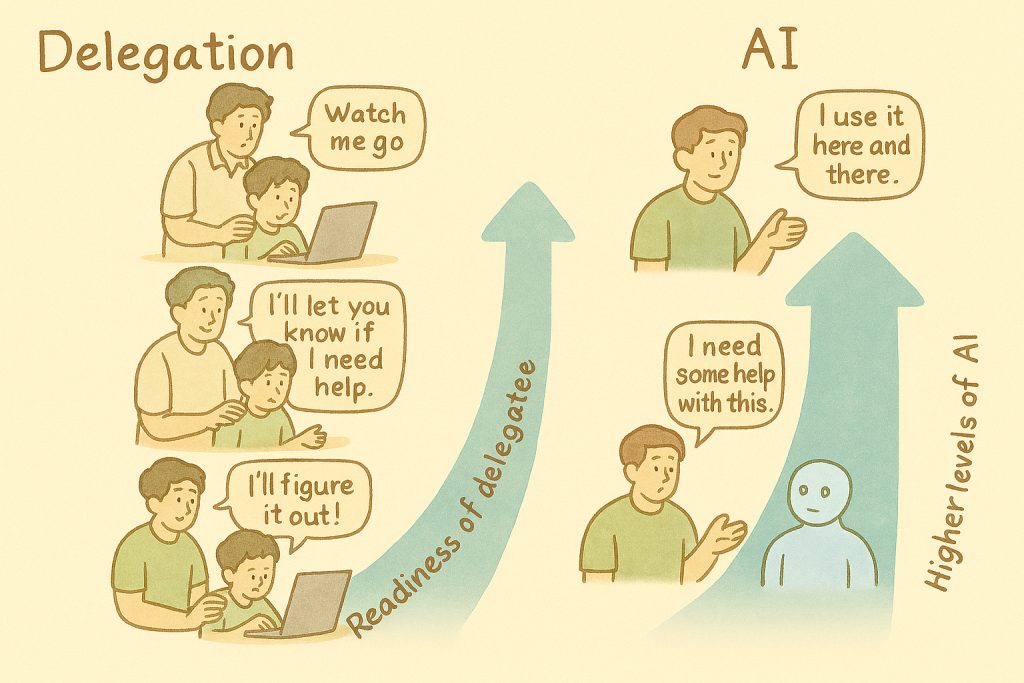Judy, the newest member in the team that you are the Scrum Master for, walks up to you to discuss a challenge she has been facing.
After her first week of self study of project artefacts, and understanding the coding standards, the source file structures in the repository as well as the commit, build etc guidelines, she felt ready to jump in and contribute.
In yesterday’s standup, when she shared this, the team identified a work-in-progress story and asked if she could contribute. Judy was very excited and said yes, right away.
In order to make sure that she does not get under too much pressure – as there was only 1 week left in this sprint, it was decided that she pairs up with Rajesh, the architect for the team.
That would surely help Judy, the newest member of team – but with prior experience of about 2 years on another project – to learn from the seniormost member of the team and a person well respected for his technical skills.
So, as you were wondering what could be the issue Judy faces in just a day of working, Rajesh walks by and asks Judy if she had completed the testing. Judy calmly replies that she just got in and she hopes to be done by lunch time and would start work on that after a brief discussion with you.
Hi, said Judy, you see, I was very excited yesterday to be able to work on this story, and that too with Rajesh. Thank you for the opportunity. But, I am not sure if this will work based on what happened yesterday.
Right after the standup, Rajesh asked me to take a piece of his code written for an earlier feature and modify it to be integrated with this story, mainly in terms of the function parameter types and actual values.
While I did that in about an hour, Rajesh felt that I was taking too long and that it would have been faster if he had completed the coding himself.
So, based on that, he said that I can watch him work, so that I can learn how to be more efficient.
My challenge is that he is too fast, and does not explain the steps he takes or the reasons behind them.
When I mentioned it, he said that he does not have time to train me and that I should be writing the unit test cases for his code.
But, without understanding the full functionality or having some written specs, how can I do that?
I do not have any issues in working with anyone, but I am unable to see how I can contribute effectively in this situation.
Please help.
So, the challenge for this week is:
What would you do in this situation, so that the commitments for this sprint are met while enabling Judy also to learn, so that she can delivery to her full capacity in the next sprint?
Suggested solution:
Let us identify some smaller objectives that you can consider to address all the key stakeholders in this situation:
- Judy, who brought her challenge to you
- Rajesh, in whom you would like to help bring a change in working style
- the PO, to whom the sprint commitments have been made
Judy can understand the concerns that Rajesh has – is it just the speed of her working or the technical excellence and based on that, seek Rajesh’s guidance and also learn from observation, on the tricky parts.
For Rajesh, have an open conversation on his strength of technical excellence and high ownership and how he can contribute even more effectively, by raising the technical excellence in the team. That would require him to take a more guiding and influencing role, than being just an individual contributor. This would usually require multiple interactions and such changes in ways of working will require time.
But, that may not help address the commitments made for this sprint. Hence the PO, as the third significant stakeholder also needs to be considered.
Here also, conversation is the best technique to keep the PO updated as early as possible and seek guidance on any possible reprioritization of the work-in-progress stories, to ensure that as many of the higher value and higher priority stories are completed.
the above may seem simplistic and implementing this may be much more involved.
But, keeping in mind the following key principles will help:
Conversations, teamwork, and progressive elaboration that includes continuous delivery, frequent deliveries, supporting the individuals [team members], attention to technical excellence, evolving architectures through self organizing teams
Have you tried any other approaches that have worked for you?
or tried and faced challenges with any others? that would be good learning for the rest of us.
Do share your thoughts.



